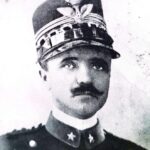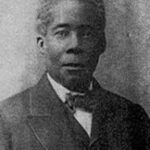ELENI
- 3 Min Read
Empress Eléni (147-April 1522), who reigned from 1468-78, was the wife of Emperor Ba’eda Maryam. She played an important role in Ethiopian history when, in 1508, she accepted Portuguese overtures to establish relations with Ethiopia.
Empress Eléni, who was kind and pious, was also a good Christian theologian. She is credited with writing two religious works “Praise Ye with Organs,” in which she inquired into the questions of the Trinity and the purity of St. Mary, and “Rays of the Sun,” in which she discussed the laws of God. Her kindness, piety, and concern for the welfare of others made her popular with all sections of Ethiopian society.
As a result, she continued, contrary to custom, to play an important role in Ethiopian politics even after her husband died in 1478. When Ba’eda Maryam’s grandson Lebna Dengel, succeeded to the throne in 1508 at the age of 12, Eleni became one of the regents and outshone the other regents because of her experience in politics. In 1508 she welcomed two Portuguese envoys, João Gomes and João Sanchez, who were accompanied by a Tunisian guide, Sid Mohammed. The envoys brought with them letters from Dom Manuel, king of Portugal from 1495-1521, to the emperor, who was then believed to be the legendary Prester John. Dom Manuel was seeking Ethiopia’s alliance against Egypt and Portugal’s other rivals in the Indian Ocean.
Eléni took the opportunity to end Ethiopia’s isolation in the perpetual conflict with Adal (located in the eastern lowlands, near the Straits of Bab-el-Mandeb, at the entrance to the Red Sea and other neighbouring sultanates. She sent Matéwos, or Mathew, a merchant of Armenian descent who lived in Ethiopia, with impressive gifts to Dom Manuel. In her letter, she promised Ethiopia’s help with soldiers and provisions. She was convinced that a crusade by a land power like Ethiopia and a maritime nation like Portugal would succeed.
When, however, a second Portuguese mission landed in 1520, the regency had been dissolved, and Lebna Dengel had assumed power, so Eléni could not fulfill the terms of the alliance. Lebna Dengel did not have Eléni’s understanding of Ethiopia’s problems or her foresight into the country’s future relations with its vassal sultanates. But, after losing political power, Eléni continued until her death in April 1522 to be an influential person at court and was one of the few people who could influence the impulsive emperor to show himself as a moderate, wise, just, and merciful ruler.
MERID WOLDE ARAGAY





